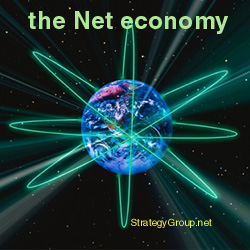 By Mark Whitehouse – The Chinese credit boom has rapidly turned the country into one of the developing world’s most indebted, according to a new report (pdf) from London’s Centre for Economic Policy Research.
By Mark Whitehouse – The Chinese credit boom has rapidly turned the country into one of the developing world’s most indebted, according to a new report (pdf) from London’s Centre for Economic Policy Research.
Such credit-fueled growth can’t be sustained for long without causing major distortions and setting the country up for a fall.
The stimulus is already running into diminishing returns. Over the five years through 2013, government and private debt grew by about 3 yuan for each added yuan of economic activity, a level of credit intensity that the U.S. exceeded only in the years leading up to the 2008 crisis. more> http://tinyurl.com/k5985du







You must be logged in to post a comment.